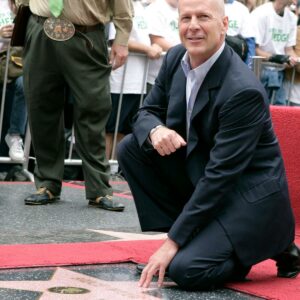In the late 1960s, a young boy with boundless energy, magnetic charm, and an unmistakable voice captured the hearts of audiences across America. Michael Jackson, though just a child, quickly became a star in a family group called the Jackson 5, breaking into the mainstream through their electric television appearances. These early encounters with the camera would not only showcase Michael’s prodigious talent but also shape the public image of a boy who would grow to become the King of Pop. The story of Michael Jackson’s rise is one of early brilliance, charm, and ambition, cemented by an unforgettable start on television.
The Rise of the Jackson 5
The Jackson 5 burst onto the music scene in 1969, bringing a refreshing sound that blended pop, soul, and a touch of funk. Made up of five Jackson brothers—Jackie, Tito, Jermaine, Marlon, and Michael—the group was a blend of musical family talent and tight-knit harmonies. Their style, however, went beyond the music: they were a package of polished, coordinated moves and high-energy performances that instantly captivated audiences.
Michael, the youngest member of the group, was the undisputed standout. His charisma and natural stage presence were impossible to ignore, even among his talented siblings. With his voice soaring over their harmonies, Michael infused the group’s songs with an emotional range and purity that belied his age. As the lead singer, he became the face of the Jackson 5, winning hearts and minds with his dynamic performances.
The group’s relationship with Motown was pivotal. Motown, under the visionary leadership of Berry Gordy, had a track record of grooming artists and catapulting them into stardom. Their association gave the Jackson 5 access to top-notch producers, songwriters, and publicity opportunities that would allow them to showcase their talents on the nation’s most popular platforms. Motown’s polished marketing, combined with the Jackson 5’s talent, made them unstoppable. And it wasn’t long before they made their way to the nation’s televisions, providing them with a launchpad into mainstream popularity.
First TV Appearances: Breaking Into the Mainstream
As the Jackson 5’s popularity grew, so did their exposure on television. In December 1969, they made their iconic debut on The Ed Sullivan Show, a program known for spotlighting emerging musical talents. For the Jackson 5, this was more than just a performance; it was an introduction to America. The young Michael, with his infectious smile and show-stopping vocals, stole the show. Audiences were entranced by the energy of the group, particularly the pint-sized dynamo at the microphone. In one evening, Michael Jackson went from a relative unknown to a national phenomenon.
Shows like The Ed Sullivan Show and American Bandstand were crucial for artists in the pre-internet era. These programs brought artists directly into people’s living rooms, offering a level of exposure that radio alone could not achieve. Performing hits like “I Want You Back” and “ABC,” the Jackson 5 captivated audiences, both young and old. These songs, catchy and upbeat, highlighted the band’s blend of pop melodies and soul rhythms, a sound that was accessible and groundbreaking.
Through their television appearances, the Jackson 5—and Michael, in particular—connected with fans on a deeply personal level. The young Michael had a way of looking directly into the camera, creating a bond with viewers that felt genuine and spontaneous. His confidence and expressiveness transcended the screen, making fans feel as if they were part of something special. These performances played an essential role in popularizing their music and establishing a fanbase that would follow Michael for the rest of his life.
Michael’s Star Power Shines Through
As the Jackson 5 continued to dominate the charts, it became clear that Michael was a star in his own right. His voice, which could oscillate between smooth falsettos and powerful belts, captivated audiences and showcased a vocal maturity well beyond his years. Onstage, Michael was an energetic performer, blending youthful exuberance with seasoned professionalism. Whether it was his smooth spins, impeccable timing, or effortless connection with the audience, Michael possessed an innate charisma that separated him from other performers of his age.
Television helped audiences witness Michael’s talents firsthand, and critics began to take notice. He wasn’t just a “cute kid” in a band; he was a serious performer with limitless potential. Fans and industry insiders alike were quick to recognize that he was destined for something beyond the Jackson 5. Television appearances allowed him to showcase his remarkable range as an entertainer, giving fans an early glimpse into the depth of his talent.
These performances were not only a showcase of talent but also a learning experience for young Michael. With every appearance, he learned the ins and outs of the entertainment industry—the technical aspects of television production, the importance of timing and delivery, and the art of connecting with audiences. In many ways, these performances were a training ground for Michael, preparing him for the incredible solo career that lay ahead.
A Launchpad for a Legendary Career
The early television appearances of the Jackson 5 and Michael Jackson were more than mere performances; they were a launchpad for a legendary career. These shows introduced Michael to the world, building the foundation of a public persona that would soon grow into an international icon. Television gave him a platform to shine, honing his craft and learning to navigate the demanding world of entertainment.
The skills and confidence Michael gained during these formative years were invaluable. He learned the value of stage presence, the importance of audience connection, and the necessity of perfection in every performance. Each TV appearance strengthened his fanbase and reinforced his status as a rising star, setting the stage for the future King of Pop.
These performances helped solidify Michael’s identity as an artist, blending musical skill with an unforgettable persona. They allowed him to cultivate a loyal following, one that would remain by his side as he ventured into his solo career. Fans watched as Michael grew from a talented child into a global phenomenon, each step of his journey immortalized on television screens across the world.
As Michael Jackson transitioned into his solo career, the impact of his early television appearances remained. The young boy who once danced and sang his heart out on shows like The Ed Sullivan Show was now a musical powerhouse with a legacy that spanned generations. His journey from child star to music legend was shaped, in large part, by the magic of television—a medium that introduced him to the world and allowed him to blossom into an icon.
In the end, these appearances were not just milestones in his career; they were pivotal moments in the history of pop music. Michael Jackson’s rise to fame through television marked the beginning of a new era, where artists could connect with audiences in ways previously unimaginable. Today, Michael’s legacy continues to shine, a testament to the power of talent, determination, and the lasting impact of those early performances that captured the hearts of millions.





